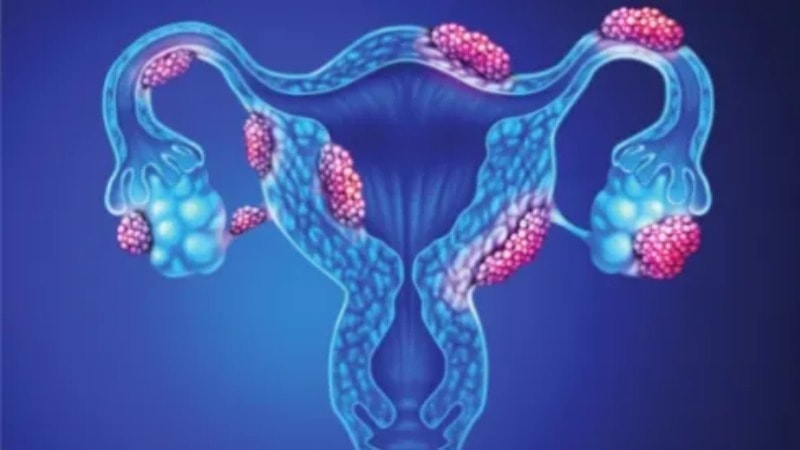Can Pelvic Inflammatory Disease (Pid) Affect Fertility?

Are you worried about how pelvic inflammatory disease (PID) could impact your fertility? Well, look no further because this article will provide you with all the information you need.
PID is a common infection that affects the female reproductive organs, and it can have serious consequences on your ability to conceive. Understanding the impact of PID on fertility is crucial in order to take preventive measures and seek early treatment if necessary.
By learning about the causes, symptoms, and treatment options for PID, you can better manage its effects on your reproductive health. Additionally, we will discuss how pregnancy can still be possible after a diagnosis of PID and explore any potential long-term effects on women’s overall well-being.
So don’t hesitate – read on to find out everything you need to know about how PID can affect your fertility!
Key Takeaways
- PID can disrupt ovulation and hormonal balance, potentially impacting fertility.
- Prompt medical attention and prescribed treatment can minimize risks and increase chances of maintaining fertility.
- Seeking prompt medical attention and following healthcare provider’s recommendations is crucial for treatment and monitoring of PID.
- Support from healthcare professionals or support groups and regular check-ups after treatment can provide valuable information and emotional assistance and monitor recovery progress.
Understanding Pelvic Inflammatory Disease (PID)
Did you know that PID, a common infection in women, can potentially impact fertility?
Pelvic Inflammatory Disease (PID) occurs when bacteria enters the reproductive organs and causes inflammation. This condition usually develops as a result of sexually transmitted infections such as chlamydia or gonorrhea.
When left untreated, PID can lead to serious complications, including scarring of the fallopian tubes and uterus. These scars can block or damage the tubes, making it difficult for eggs to travel from the ovaries to the uterus during ovulation. As a result, fertility may be affected, leading to difficulties in getting pregnant or an increased risk of ectopic pregnancies.
It’s important to seek medical attention if you suspect you have PID to prevent any potential long-term consequences on your ability to conceive.
The Impact of PID on Fertility
You may not realize it, but the damage caused by PID can make it difficult for you to conceive and start a family.
When left untreated, PID can lead to serious complications that can affect your reproductive system. The inflammation and scarring caused by the infection can block or damage the fallopian tubes, making it harder for sperm to reach an egg or for a fertilized egg to implant in the uterus. This increases the risk of ectopic pregnancy, where the fertilized egg implants outside of the uterus.
Additionally, PID can also cause pelvic adhesions, which are bands of scar tissue that form between organs in the pelvis. These adhesions can further interfere with fertility by causing infertility issues such as blocked fallopian tubes or distorted uterine shape.
Therefore, prompt treatment and prevention of PID are crucial to protect your fertility and increase your chances of starting a family.
Preventing PID
Take steps to protect your reproductive health by practicing safe sex and using barrier methods of contraception to prevent the spread of sexually transmitted infections that can lead to PID. Here are four important reasons why you should prioritize preventing PID:
- Avoid the pain and discomfort: PID can cause severe pelvic pain, which can interfere with your daily activities and significantly impact your quality of life.
- Preserve your fertility: PID is a leading cause of infertility in women. By taking preventive measures, you can reduce the risk of developing PID and safeguard your ability to have children in the future.
- Prevent complications: Untreated PID can lead to serious complications such as ectopic pregnancy, chronic pelvic pain, and abscess formation. Protecting yourself from this infection reduces the likelihood of experiencing these complications.
- Maintain a healthy sexual relationship: Taking precautions against STIs that cause PID not only protects your physical health but also ensures a fulfilling and worry-free sexual experience with your partner.
By prioritizing prevention, you’re taking control of your reproductive health and reducing the potential negative consequences associated with PID.
Treating PID
To effectively address and overcome PID, it’s essential to explore available treatment options that can alleviate symptoms and promote a healthy recovery.
If you are diagnosed with PID, your healthcare provider will most likely prescribe antibiotics to treat the infection. It’s crucial to take the full course of antibiotics as prescribed, even if your symptoms improve before completing the treatment.
Additionally, your partner should also be tested and treated for any potential infections to prevent reinfection.
Alongside medication, rest and self-care are vital in aiding your recovery process. Avoiding sexual intercourse until both you and your partner have completed treatment is necessary to avoid spreading the infection further.
Regular follow-up appointments with your healthcare provider are important to monitor progress and ensure complete resolution of the infection.
Managing the Effects of PID on Fertility
If left untreated, the consequences of PID can have a significant impact on your ability to conceive and have a successful pregnancy. However, there are ways to manage the effects of PID on fertility.
One important step is to receive prompt and appropriate treatment for PID to prevent further damage to your reproductive organs. It’s crucial to complete the full course of antibiotics prescribed by your healthcare provider.
Regular follow-up visits and testing can help monitor your condition and ensure that any recurrent or persistent infections are promptly treated.
Additionally, practicing safe sex, using barrier methods like condoms, can reduce the risk of reinfection or contracting other sexually transmitted infections that could further damage your reproductive system.
If you’re struggling with infertility due to PID, consulting with a fertility specialist can provide additional options such as assisted reproductive technologies like in vitro fertilization (IVF) or intrauterine insemination (IUI).
Remember, early detection and proper management of PID can greatly improve your chances of achieving a healthy pregnancy.
Pregnancy After PID
If you’ve had pelvic inflammatory disease (PID) and you’re considering pregnancy, it’s important to understand the success rates and challenges that may arise. Many women with a history of PID are able to conceive and have successful pregnancies. However, there can be increased risks, such as ectopic pregnancy or preterm birth. It’s crucial to take necessary precautions and undergo regular monitoring during pregnancy to ensure a healthy outcome for both you and your baby.
Success Rates and Challenges
Despite the challenges faced, PID can still impact fertility rates and it’s important to understand the success rates.
It is not uncommon for women who have had PID to experience difficulty getting pregnant. In fact, studies have shown that women with a history of PID are more likely to have infertility issues compared to those without.
The success rates of achieving pregnancy after PID vary depending on factors such as the severity of the infection and whether or not there was damage to the reproductive organs. While some women may be able to conceive naturally, others may require fertility treatments such as in vitro fertilization (IVF) or intrauterine insemination (IUI).
It is crucial for individuals affected by PID to seek medical attention promptly and follow treatment plans in order to maximize their chances of conceiving successfully.
Precautions and Monitoring During Pregnancy
During pregnancy, it’s important to take precautions and closely monitor any potential complications. Here are some key steps to ensure a healthy pregnancy:
- Visit your healthcare provider regularly for check-ups and screenings.
- Follow a balanced diet rich in fruits, vegetables, whole grains, and lean proteins.
- Stay active with exercises suitable for pregnancy, like walking or prenatal yoga.
- Avoid smoking, alcohol consumption, and illicit drugs.
Regular monitoring during pregnancy can help identify any issues early on and allow for prompt treatment. It’s especially crucial for individuals who’ve had pelvic inflammatory disease (PID) in the past as it may increase the risk of complications.
By following these precautions and undergoing regular monitoring throughout your pregnancy journey, you can enhance the chances of a healthy outcome for both you and your baby.
Long-term Effects of PID on Women’s Health
Although PID can have long-term effects on women’s health, it’s important to note that these complications may include chronic pelvic pain and an increased risk of infertility. If left untreated or not properly managed, PID can lead to scarring in the reproductive organs, such as the fallopian tubes.
This scarring can cause blockages and prevent the egg from traveling through the tube effectively, resulting in difficulty getting pregnant. Additionally, inflammation caused by PID can also affect ovulation and disrupt the normal hormonal balance necessary for conception.
It’s crucial for women who’ve had PID to seek medical attention promptly and follow their healthcare provider’s recommendations for treatment and monitoring. By doing so, you can help minimize the potential long-term impacts of PID on your fertility and overall health.
Conclusion: Seeking Early Treatment and Support for PID
To ensure the best possible outcomes for your health, it’s important to seek early treatment and support for PID. Pelvic inflammatory disease can have long-term effects on women’s health, including potential impacts on fertility. However, by seeking prompt medical attention and following the prescribed treatment plan, you can minimize these risks and increase your chances of maintaining fertility.
Here are some key reasons why early treatment and support are crucial:
- Early intervention can help prevent the spread of infection to other reproductive organs.
- Timely diagnosis allows for appropriate antibiotic therapy, which can effectively treat the infection and reduce inflammation.
- Seeking support from healthcare professionals or support groups can provide valuable information and emotional assistance during this challenging time.
- Regular check-ups after treatment can monitor your recovery progress and address any lingering concerns.
Remember, taking action as soon as you suspect PID is essential in protecting your future reproductive health. Don’t hesitate to reach out for help!
Frequently Asked Questions
What are the symptoms of pelvic inflammatory disease (PID)?
PID can cause symptoms such as pelvic pain, abnormal vaginal discharge, painful urination, and irregular periods. It’s important to seek medical attention if you experience any of these symptoms to prevent complications.
Can PID be transmitted through sexual contact?
Yes, PID can be transmitted through sexual contact. It is an infection of the reproductive organs caused by bacteria entering the vagina. Early diagnosis and treatment are crucial to prevent complications and preserve fertility.
Is PID a common condition?
PID is not uncommon, especially among sexually active individuals. It can lead to serious complications if left untreated, including fertility issues. Regular check-ups and practicing safe sex are important measures to prevent PID.
How is PID diagnosed?
To diagnose PID, your doctor will ask about your symptoms and perform a pelvic exam. They may also order lab tests, such as a urine test or a swab of the cervix or vagina, to check for infection.
Can PID be cured completely?
Yes, PID can be cured completely with the right treatment. However, if left untreated, it can lead to complications that may affect fertility. It’s important to seek medical help as soon as possible.








